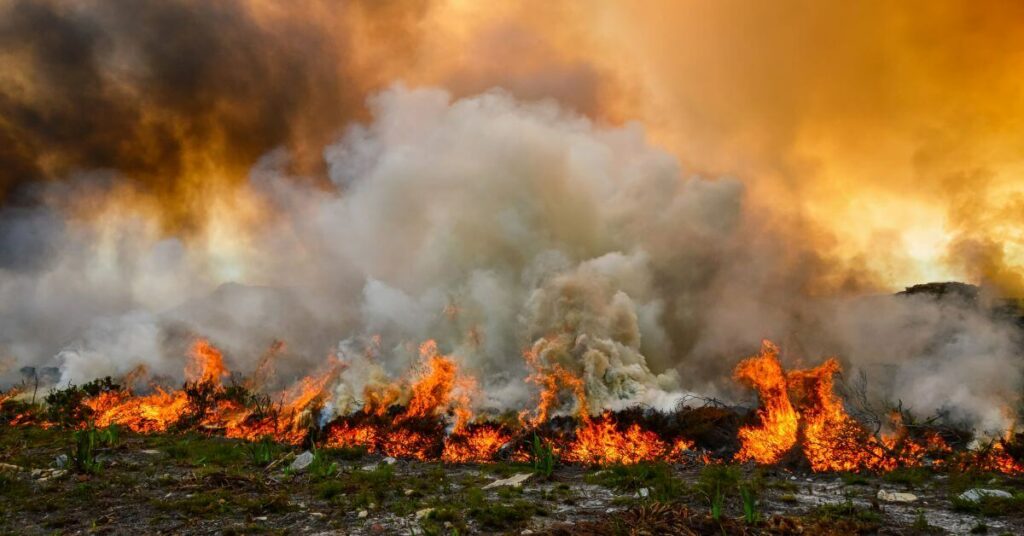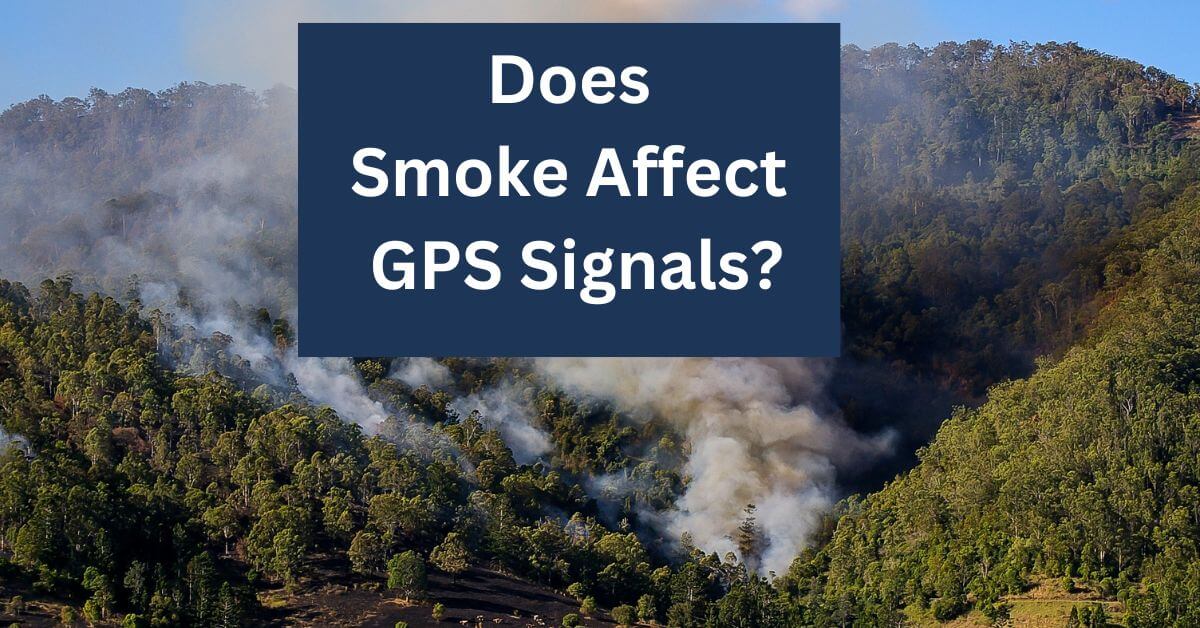GPS technology has become an essential tool in our daily lives. From getting directions to tracking fitness activities; GPS has revolutionized the way we navigate the world around us. However, with the increasing number of wildfires and their smoke, a question arises: Does smoke affect GPS signal?
While GPS technology has been designed to withstand various types of interference, including intentional and unintentional jamming, naturally occurring space weather, and radio emissions in nearby bands, the impact of smoke on GPS signal remains a topic of debate. Some people believe that smoke can interfere with GPS signal, while others argue that it has no noticeable impact.
This article aims to shed light on the impact of smoke on GPS signal. We will explore various sources and studies to provide readers with an informed understanding of this issue. By the end of this article, readers will be able to make an informed decision about whether smoke can affect GPS signal or not.
How Does GPS Work?
GPS, or Global Positioning System, is a satellite-based navigation system that allows users to determine their precise location and track their movements. This system consists a network of at least 24 satellites that orbit the Earth, ground control stations, and GPS receivers. The GPS receiver that’s located within a device listens for signals from multiple satellites and uses this information to calculate its location here on Earth.
These GPS satellites constantly transmit signals containing information about their location and the time that the signals were transmitted. The GPS receiver in a device receives these signals and uses the information to calculate the distance between itself and each satellite. By triangulating the distances to at least four satellites, the GPS receiver can determine its precise location on the Earth’s surface.
The accuracy of GPS depends on several factors, including the number of satellites visible to the receiver, the quality of the receiver, and the presence of any obstructions that may interfere with the signal. For example, tall buildings, mountains, and dense foliage can block or reflect GPS signals, causing inaccuracies in the calculated location. For a more in depth review check out our previous article on what can affect GPS signals.
Despite some of these limitations, GPS technology has become an essential tool for navigation, surveying, and tracking. It’s used in a wide range of different applications, from flying and transportation to outdoor recreation such as hiking, running and sailing as well as assisting emergency response teams.
GPS Signal Interference
GPS signals can be affected by a variety of factors, including interference from other radio signals, natural phenomena, and human-made objects.
Smoke from wildfires can also have an impact on GPS signal reception. Studies have shown that GPS signals can be affected by wildfires themselves, due to both thermal and electromagnetic effects from the fires. However, the impact of smoke on GPS signals is less clear.

Smoke can potentially affect GPS signals by scattering and absorbing the GPS signal, leading to a weaker and less accurate signal. However, the extent of this impact is dependent on a variety of factors, including the density and composition of the smoke, the distance between the GPS receiver and the smoke, and the type of GPS receiver being used.
While the impact of smoke on GPS signals may be minimal in some cases, it is important to be aware of the potential for interference and take necessary precautions. This may include using alternative navigation methods or adjusting the GPS receiver’s settings to account for weaker signal strength.
Smoke and GPS Signal
GPS signals are radio waves that travel through the atmosphere. Smoke and other atmospheric conditions can affect the GPS signal. While smoke may not completely block the GPS signal, it can cause interference and reduce the accuracy of the GPS signal.
Smoke particles can absorb and scatter the GPS signal, causing it to weaken as it travels through the atmosphere. This can lead to a reduced signal strength and a decrease in accuracy. Smoke can also cause multipath errors, where the GPS signal reflects off smoke particles and creates multiple signals that can cause confusion for the GPS receiver.
Does Smoke Affect GPS signal?
Studies have shown that wildfire smoke can affect the GPS signals due to both thermal and electromagnetic effects from the fires. However, the impact of smoke on GPS signals is generally limited to the direct area of the fires and may not affect GPS signals outside of this area.
It is important to note that GPS systems are designed to work in various weather conditions and environments, including smoke and other atmospheric conditions. However, the accuracy of the GPS signal may be affected in these conditions.
Whilst smoke may not completely block the GPS signal, it can cause interference and reduce the accuracy of the GPS signal. It is important to be aware of these potential effects when using GPS systems in areas with smoke or other atmospheric conditions.
Research and Studies
There have been several studies conducted to determine whether smoke affects GPS signals. Some of the notable studies are:
- A study conducted by the University of California, San Diego found that smoke from wildfires can interfere with GPS signals, causing errors in location accuracy. The study used data from GPS receivers during a wildfire in San Diego County and found that the smoke particles affected the GPS signals, causing errors of up to 50 meters in some cases.
- Another study conducted by the University of Colorado Boulder found that smoke from wildfires can also affect the accuracy of GPS-based navigation systems used by aircraft. The study found that smoke particles can absorb and scatter GPS signals, which can cause errors in navigation systems.
- A study by the National Institute of Standards and Technology (NIST) found that smoke can also affect the accuracy of GPS-based time synchronization systems. The study found that smoke particles can cause errors in the time synchronization of GPS signals, which can affect the accuracy of time-dependent systems such as power grids and financial networks.
These studies suggest that smoke can indeed affect GPS signals, causing errors in location accuracy and navigation systems. It is important to consider the potential impact of smoke on GPS signals in situations where accurate location and navigation are crucial, such as during wildfires or in aviation.
Conclusion
GPS signals can be affected by various factors, including smoke from wildfires or other sources. Wildfire smoke can cause GPS errors, but these errors are typically limited to the immediate area of the fire. Smoke can reduce the accuracy of GPS signals, but it is unlikely to completely disrupt the signal.
Other factors that can affect GPS signals include atmospheric conditions, such as ionospheric scintillation or tropospheric delays. Multipath errors can also cause GPS errors, as signals can reflect off of nearby objects before reaching the GPS receiver. However, these errors are generally not as severe as those caused by interference from intentional or unintentional jamming.
Smoke can, therefore, affect GPS signals, however, it’s not typically a major concern for most users. GPS technology has been designed to be relatively immune to interference from smoke or other environmental factors, and modern GPS receivers are generally quite reliable even in the most challenging of conditions.
Sources:
- University of California, San Diego study: Title: The effects of wildfires on GPS and related positioning services Authors: Grace Xingxin Gao, Han Wang, Jiyun Lee, Frank van Diggelen, and Per Enge Published in: Proceedings of the 22nd International Technical Meeting of The Satellite Division of the Institute of Navigation (ION GNSS 2009)
- University of Colorado Boulder study: Title: Impact of Wildfire Smoke on GPS and its Application to Wildfire Navigation Authors: Jennifer C. Haase, Michael J. Doucette, and Robert C. Werne Published in: Journal of Applied Meteorology and Climatology, Volume 55, Issue 1 (2016)
- National Institute of Standards and Technology (NIST) study: Title: Analysis of the Impact of Wildfire Smoke on GPS Signal Reception in the Western United States Authors: Andrew B. Platt, Paul A. Williams, and Michael A. Lombardi Published in: Proceedings of the 2017 International Technical Meeting of The Institute of Navigation (ION ITM 2017)



